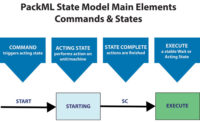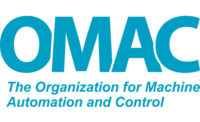OMAC Column
Implementing PackML PackTags
Implementation in an OPC UA server offers potential for end-to-end OEE solutions

Since becoming a standard 15 years ago, PackML has proven to be a powerful development and production tool. End users worldwide rely on PackML’s state model and consistent terminology to easily integrate disparate machines on a packaging line, manage production problems and simplify training. A large number of OEMs use PackML to shorten engineering and commissioning time, improve quality and create reusable code. End users, OEMs and technology providers are now turning their attention to PackML’s potential in process optimization and monitoring Overall Equipment Effectiveness (OEE) and line efficiency — at both the plant and enterprise level.
PackML’s defined data points, called PackTags, provide the raw data necessary for end users to monitor Key Performance Indicators (KPIs) and machine efficiency in real time. A number of end users now integrate raw PackTag data from machines and sensors into their OEE calculations. Typical OEE metrics taking advantage of PackTag data include availability, performance and quality. OEMs and technology providers are increasingly supporting end user efforts to use PackML for OEE, while also using PackTag data to identify potential improvements to their products.
PackML and PackTag Basics
- PackML, an Organization for Machine Automation and Control (OMAC) standard, has three main components:
- Modes define how a machine operates.
- The State Model defines top level machine control. It coordinates component operation and reacts to changes.
- PackTags are data points that describe the condition of a machine in a standardized format. Data is categorized as Command, Status or Administration points. Because they are standardized, they simplify machine-to-machine integration but also provide a consistent reference for communication within a plant as well as enterprise-wide.
- Command Tags contain data required for line control and machines to make a change and interface with each other. They are receiving data written to, and used by, a machine program.
- Status Tags also contain data required for line control and machines to interface with each other. They are sending data written to machine programs that is used elsewhere on the line.
- Administration Tags contain data that is used for performance analysis or operator information, such as stoppage time, stop reason and units produced.
PackML’s commonality in programming and raw data available through PackTags provide extraordinary advantages. The challenge for taking full advantage of available raw information is that PackML does not address how data is transferred and managed in a network. This means that although PackTags offer standard data definition, communication of desired data requires a mapping exercise for complete machine-to-machine communication or communication to enterprise systems.
Standard Representation of PackTags in an OPC UA Server
A solution is to combine the strengths of PackML and OPC UA. PackML offers the standardized definitions for machine functionality, and OPC UA provides the secure communications channel between different parts of a system. PackML and OPC UA both work with traditional programmable logic controllers (PLCs), as well as PC-based control. Both standards have low computing needs and can be implemented with subsets of the overall model. Combined use of the standards offer potential for real end-to-end solutions that improve efficiency and create new economic and strategic opportunities.
OMAC, which celebrates its 25th anniversary this year, began working with OPC Foundation to create a PackML/OPC UA Companion Specification two years ago. Members of OMAC and OPC UA recently completed a beta of the PackML/OPC UA Companion Specification.
Some technology providers still implement the more advanced features of OPC UA, which are needed to fully take advantage of the PackML/OPC UA Companion Specification. This has created a temporary gap until solutions are more widely available. To fill the gap, OMAC has released an implementation guide for standard representation of PackTags in an OPC UA Server. It is available as a free download at omac.org/workgroups/packtags-in-an-opc-ua-server-implementation-guide.
Looking for a reprint of this article?
From high-res PDFs to custom plaques, order your copy today!






